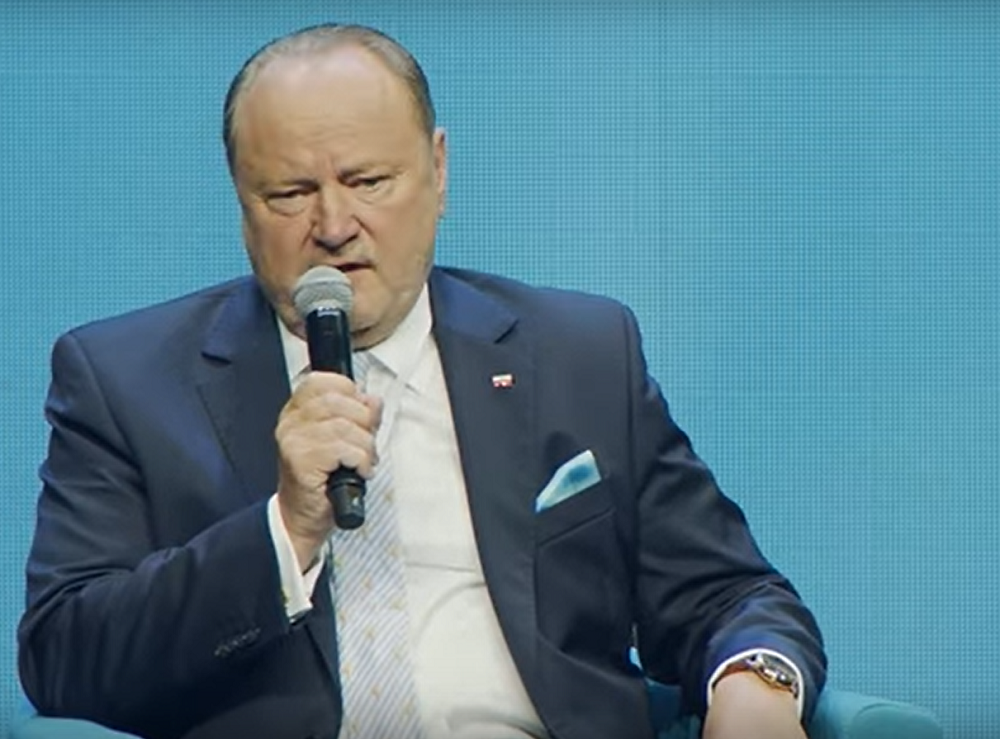
“Geopolitics is changing, geostrategies are changing, Poland is becoming a very important country in this new security system in the world” – said Janusz Szewczak, member of the board of PKN Orlen, during the 3rd Local Government Congress of the Three Seas Region, pointing out that “energy security is an important foundation of security”.
Janusz Szewczak pointed out that Poland has managed to become independent of Russian hydrocarbons, although five years ago it was not entirely clear whether this would be 100% possible.
“We want to be a leader not only in Central and Eastern Europe, but in the whole of Europe. Our presence extends from the Baltic almost to the Adriatic. We are still a bit far from it, but such ambitions are there” – he admitted, pointing to the consistency of certain concepts with the concepts implemented by the Polish government. “So this Via Carpatia, Rail Baltica is the backbone, you can say the wireframe of the security of the entire Three Seas Initiative. There must also be a segment, an element of security and energy cooperation, also in the context of Ukraine” – he explained.
“We are praised in the world and also our economic position in the European Union is growing very clearly as the power of the economy, the power of the sector, but is also reflected in an increase in the well-being of society, because relative to the European average, our society has never been at such a high level as it is at the moment, and this is the main goal of the government’s economic policy. But without ensuring security, including energy security, there will be no such development” – Jerzy Kwieciński, vice-president of PKO SA, added.
Via Carpatia
In turn, Michał Mulawa, Deputy Marshal of the Lubelskie Voivodeship, pointed to the importance of the currently created route between the north and south of Europe, connecting Klaipeda with Thessaloniki. “Via Carpatia is the flagship transport project of the Three Seas Initiative. It is the communication backbone of both the Three Seas countries and eastern Poland” – he said. “It placed the geopolitical position of the Lublin region, but also of the whole of Poland, in a completely different place” – he noted.
“Via Carpatia is also an excellent route for the development of exports when it comes to Polish products” – he emphasized. At the same time, he expressed hope “that in other countries the implementation of Via Carpatia will be carried out as dynamically as in Poland”.
“We want to jostle ourselves a bit in this Europe, but we also want to be a support for the reconstruction of Ukraine. We want to use this potential. Of course, this great tragedy for the Ukrainian nation – let’s hope it ends as soon as possible – will cause the country to revive, will have to modernize, build lives” – said Dariusz Seliga, President of the Management Board of PKP Cargo.
He expressed hope that the Ukrainian state would be free, also economically, “and we, as the PKP Cargo Group, want to help in this functioning”.
“The war caused a reversal of directions in Ukraine, because cereals and goods went through ports, so with all due respect and sympathy, earlier Ukrainian partners were not always interested in developing common terminals and border crossings in this direction. The war changed this and we use this difficult situation the together” – he said, pointing to the increase in the amount of transported cargo.
Marek Słomka, the president of Cargotor, drew attention to the need to build more transhipment terminals. “If we build it now, we won’t miss this chance, and we won’t miss it, and we or our children will be able to use it for years to come” – he announced.
“The prospect of connecting the Baltic Sea, the Black Sea or the Aegean Sea is something that made Europeans laugh of us a few years ago in the EU. Now they admire us. Now they see that it was a key investment” – he concluded. He also stressed the importance of the Via Carpatia route in providing assistance to Ukraine, which is fighting against Russia.
AW
